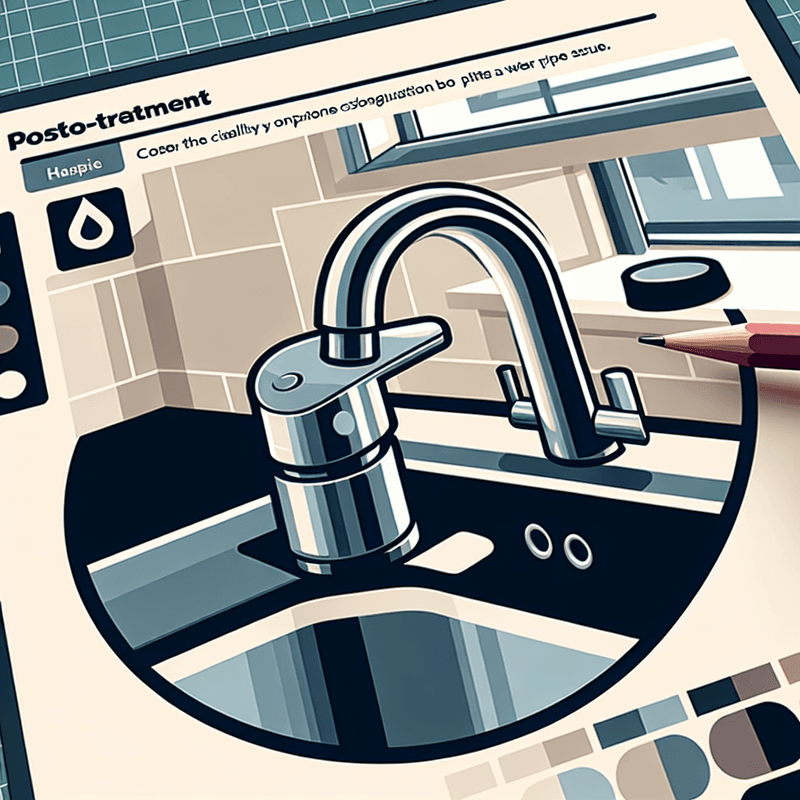Have you ever been frustrated by water stubbornly pooling in your sink, taking what feels like ages to drain away? Perhaps it’s even accompanied by an unpleasant odour or a peculiar gurgling sound. This scenario is not just inconvenient but could be indicative of deeper issues in your plumbing system. In this blog post, we're going to walk through the common problem of slow draining sinks, dissecting what causes it, how you can identify it, manage it yourself in some cases, and recognise when it's time to call in a professional.
Slow draining sinks can emerge in any household or building, and often, the issue isn't isolated, impacting your experience and routine significantly. It can signal minor blockages or more severe underlying plumbing concerns. Let’s explore this common issue in detail.
What Causes a Sink to Drain Slowly?
Congealed Fats and Oils
One of the primary culprits for blockages is the accumulation of fats, oils, and greases in the pipes. These substances, often washed down kitchen sinks, solidify in the pipes, narrowing the channel through which water can escape.
Hair and Soap Residues
In bathrooms, the combination of soap residues and hair can create a dense mat that lodges in the drain, frequently causing slow drainage.
Pipe Scale
In areas with hard water, mineral deposits can build up in pipes over time, reducing water flow and causing slower drainage.
Poor Ventilation
Plumbing systems need proper venting to allow air to follow the water through the pipes. If these vents are blocked or improperly installed, it can disrupt drainage, leading to slower water movement.
Identifying a Slow Draining Sink
The most obvious sign is water pooling and draining slower than usual. However, there are other less apparent indicators:
- Unusual Noises: Gurgling sounds from the drain can be a tell-tale sign.
- Unpleasant Smells: Foul odours can arise from debris sitting in the pipes.
DIY Fixes for Slow Draining Sinks
Boiling Water
Sometimes, a simple fix for dissolving organic materials is pouring boiling water down the drain. This method is particularly effective against grease and soap buildup.
Plunger
Using a plunger can help dislodge blockages that are not too deep within the pipes.
Baking Soda and Vinegar Mix
This natural solution is great for breaking down grease. Pour half a cup of baking soda followed by half a cup of vinegar into the drain. Cover it for 30 minutes before rinsing with hot water.
Cleaning the U-Bend
For more stubborn blockages, you may need to remove and clean the U-bend under the sink. Make sure to place a bucket underneath to catch any residual water.
When to Call a Professional
If basic home remedies don't resolve the issue, it might be time to call a professional. Here are signs that professional help is needed:
- Persistent Slow Drainage: If none of the DIY methods improve drainage speed.
- Multiple Clogged Drains: This could indicate a problem further down your plumbing system that likely requires professional equipment.
- Water Backup in Other Fixtures: If you notice water backing up in other unrelated fixtures when you use the sink, it suggests a more serious blockage.
Preventing Future Drainage Issues
Mind What Goes Down the Drain
Avoid pouring oils, fat, and coffee grounds down the drain. In the bathroom, use drain guards to catch hair.
Regular Maintenance
Regularly flush your drains with hot water or a vinegar and baking soda mix to keep minor buildups at bay.
Soften Your Water
If you live in a hard water area, consider installing a water softener to combat mineral buildups in your pipes.
Conclusion
A slow draining sink can disrupt your daily routine and might hint at bigger plumbing issues. By understanding the common causes and knowing when you can tackle the problem yourself, you can keep your sink in good working order. However, recognising when the issue is beyond a simple fix is crucial to preventing more extensive damage. Regular vigilance and maintenance are your best defences against plumbing problems, ensuring the longevity and efficiency of your home’s drainage system. Whether you decide to handle it yourself or call in the professionals, addressing a slow drain promptly will always be the right choice.





